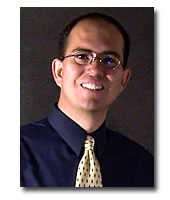My friend Jason Alba was laid off from a successful IT career in 2006. What followed is a familiar story of a rough road to finding a new job. Along the way he created JibberJobber.com, and has never returned to "Corporate America".
Jason has just released his third book (he is famous for his first, "I'm on LinkedIn... Now What?"). This new release is "51 Alternatives To A Real Job". In this book her chronicles the stories of 51 people who have carved out their own answers to a career. These include Babysitter, Event Planner, Home Stager, Personal Trainer, Leather Vinyl Doctor, and the Founder/Inventor of Ooh La Bra (which is my favorite story in the book, and I will tell you why down the page).
Jason has spent years traveling around the U.S. speaking to unemployed professionals and executives for a eight years. In his travels he was always speaking to highly talented people, but many of them had been out of work for long periods of time and some were losing hope. As he chatted with people, either at the event where he spoke or in local coffee shops, he started to realize that their was power in what he was learning from people who were finding alternative ways to earn money and get back into the workforce. BOOM, the idea for this book was born.
One of the stories he tells in the book is about Lisa Angelos McKenzie, the founder of Ooh La Bra. What is cool is that he discovered Lisa, and her story, by reading about her on MY blog. I have written about Lisa's entrepreneurial journey twice - including her being featured on a "Cool Things My Friends Do" post in December 2012. I find it extra cool that one of my friends writes about another one of my friends in his book.... and they connected from reading my blog!
"51 Alternatives to A Real Job" is currently available on Kindle (via Amazon.com) for $9.99, and is available for order on Jason's website in paperback for $19.99.
Have A Great Day
thom singer













